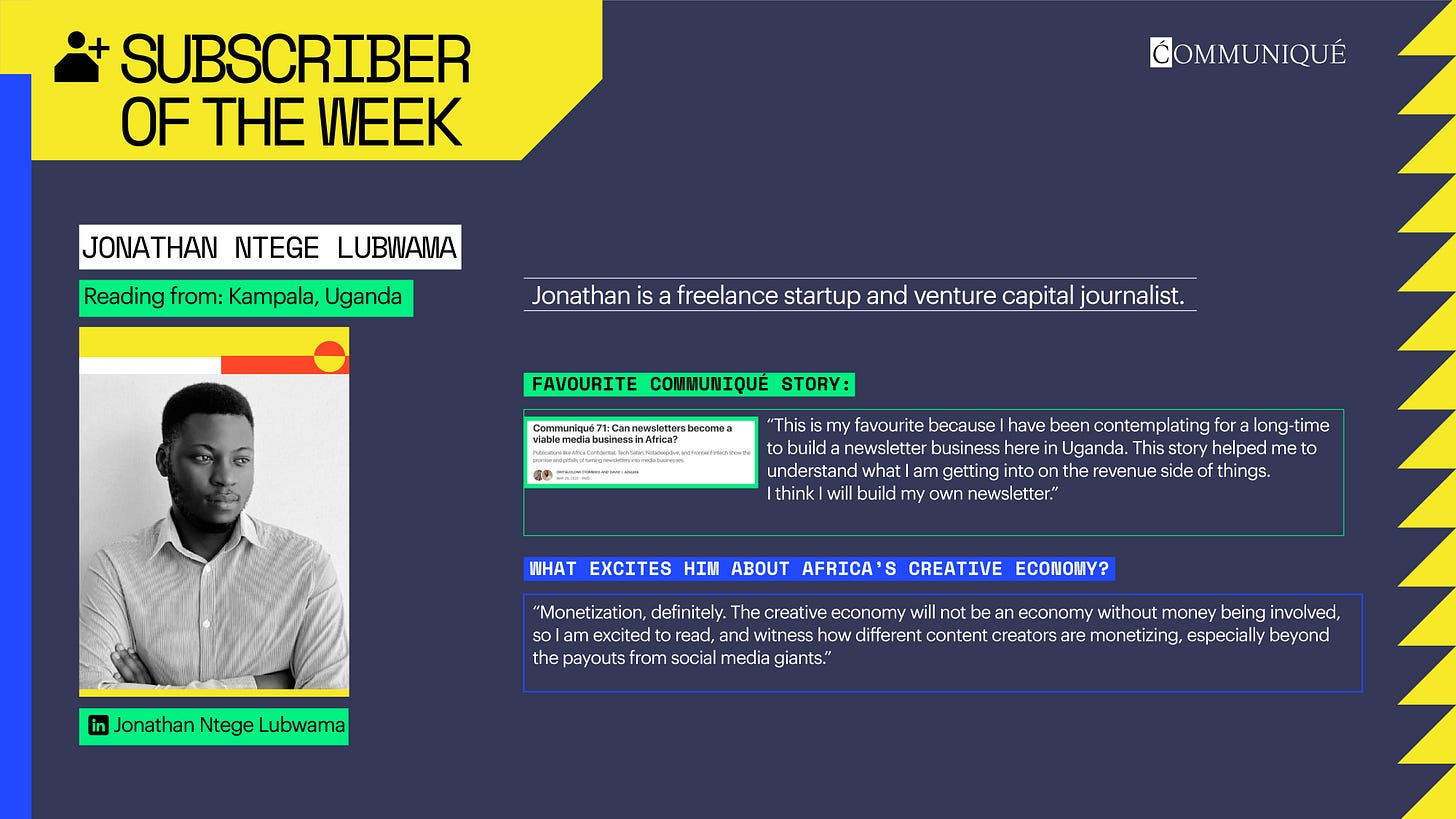Kenya flirts with censorship again + Francophone Africa’s streaming race heats up
We examine how Kenya’s recurring media crackdowns threaten press freedom, and how TF1 plans to challenge CANAL+ in Francophone Africa.
Hello,
We’re just three days away from mid-year. Now’s a good time to pause and check in: Are you on track with the goals you set in January? If not, don’t panic, it’s only half-time. You have more than enough time to turn things around.
In today’s Digest, we discuss
The Kenyan government’s growing habit of media censorship, with some commentary from The Continent’s Christine Mungai
TF1’s entry into the battle for TV screens in Francophone Africa
Center Spread 🗞️
The Kenyan government’s censorship habit
Kenya is once again in the spotlight for state censorship after authorities shut down three major television stations on June 25. The blackout followed a directive from the Communications Authority of Kenya (CA) ordering broadcasters to halt live coverage of anti-government protests. CA officials, accompanied by police officers, visited the offices of NTV, KTN, and K24 to enforce the blackout.
However, later in the day, the Kenyan Judiciary intervened and directed the CA to restore the stations’ signals. According to The East African, Justice Chacha Mwita of the Kenyan High Court ruled that the case raised “fundamental constitutional questions” about media freedom.
Notably, this is the fourth time in less than a decade that the Kenyan government threatened to shut down major television stations, and the second time it has followed through. The other time was in 2018, when it shut down the same three TV stations for airing the unofficial swearing-in of opposition leader Raila Odinga. For Kenyans, media censorship is becoming a disturbing habit.
Speaking to Communiqué, Christine Mungai, News Editor at The Continent, described the incident as another case of “institutional overreach.” She rejected the CA’s claims of protecting national interest, noting that the cited constitutional provisions guarantee press freedom unless it amounts to incitement to violence.
“If that were the case, then we would never have any kind of news. Are we saying the public is so much without any kind of critical thinking that mere exposure to violence is incitement?” she said.
Mungai warned that such actions will only “further erode public trust and our sense of public discourse,” especially because many Kenyans still rely on live TV broadcasts to verify news circulating on social media.
Francophone Africa’s streaming wars heat up
Télévision Française 1 (TF1), the French commercial TV giant, has announced that it will launch its free, ad-supported streaming service, TF1+, in 22 of the 24 Francophone African countries, starting June 30, 2025.
TF1 joins two other French media companies operating in the region: TV5Monde and CANAL+. The latter is the region’s leading pay-TV operator, with its CANAL+ Afrique platform offering access to over 400 channels, and producing 4,000 hours of original content annually. CANAL+ also operates CanalOlympia, a network of cinema venues in the region, and holds a stake in the Senegalese streaming service MarodiTV.
This African rollout is part of TF1’s broader ambition to become the leading entertainment platform in Francophone markets worldwide. It is betting on scale and accessibility by offering subscribers premium content for free and monetizing it through advertising, a strategy it has already implemented with modest success in Europe. TF1’s 2024 financial report revealed that since launching the streaming app in France in 2023, it has attracted over 35 million viewers, with more than 1.2 billion hours of content streamed.
Francophone Africa is shaping up to be too strategic to ignore as the battle for streaming dominance continues. Though the region lags behind Anglophone Africa in terms of content production, particularly in feature-length films and theatrical releases, these recent moves by CANAL+ and TF1 signal growing confidence in the market.
Notably, TF1+ goes live just one day before CANAL+ Afrique’s much-anticipated Netflix bundle launches.
Crunch Time 📈
Catch Up 📬
What should capital deployment for Africa’s creative industry look like?
Africa’s creative and cultural industries are among the fastest-growing and most impactful sectors globally. However, despite growing interest, the industry remains largely unstructured, with few clear pathways for effectively deploying capital to drive growth at scale.
The latest Communiqué essay offers a radical blueprint for how a $1 billion fund could be deployed to strengthen the industry. Instead of funding the next big hit, the focus is on building long-term infrastructure for sustainable value creation.
Read the full essay here.
Communiqué’s Subscriber of the Week 🤩
Curiosity Cabinet 🗄️
Social media creators are on track to overtake traditional media in global ad revenue this year.
The Netherlands has officially returned 119 looted Benin Bronzes. (Read Communiqué 53 for more context.)
TikTok to train 3,000 creators in Sub-Saharan Africa
What African creators should know about CapCut’s new terms and agreement
Here are the events happening next week in Africa’s creative economy
The National Arts Festival in Makhanda, South Africa, is still underway. It runs until 6 July. Get tickets here.
The Kilimanjaro Film Festival kicks off on 2 July in Moshi, Tanzania. Get the details here.
See what else is happening across the continent via Communiqué’s African Creative Economy Database.
That’s it for this week’s Digest. See you next week.





